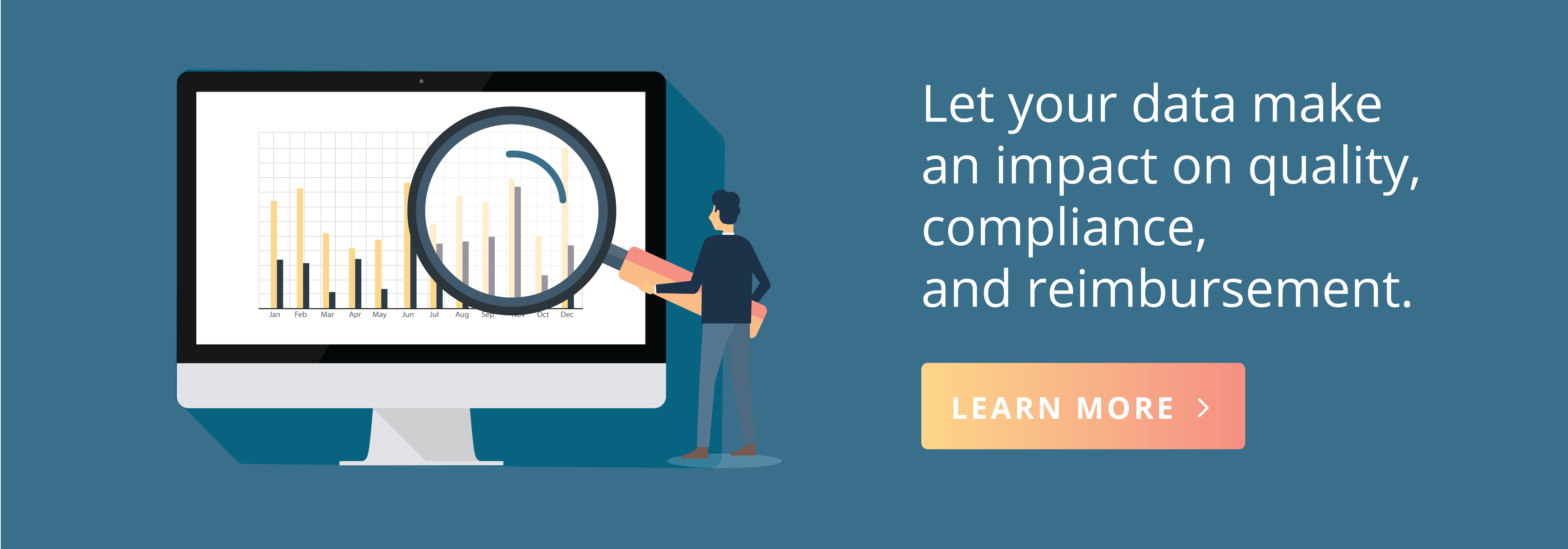The option for Medicare beneficiaries to choose how their benefits are administered through private health plans is not a new arrangement. These alternative options are now referred to as Medicare Advantage plans. As consumerism in healthcare continues to take hold, enrollment in Medicare Advantage plans is steadily increasing, with enrollment doubling in the last ten years.
The shift from volume-based care to value-based care is also increasing, which means that changes in healthcare processes must occur to accommodate the growing demand to change the way reimbursement is provided. Reimbursements are increasingly focused on quality of care and outcomes, and this change is also influenced by the growing consensus that social determinants of health impact outcomes more than healthcare services.
Medicare Advantage health plans are in a unique position to collect and utilize data on social determinants of health to identify gaps in care. Capitated (monthly) payments put health plans in the unique position of being at-risk for the whole person’s care. Here’s a look at how some leaders in this space are implementing value-based care arrangements and prioritizing care for social determinants in the year ahead.
Humana’s Bold Goal Program
In 2015, Humana announced its Bold Goal, a population health strategy to improve the health of the communities they serve by 20% by 2020. Since then they have committed to taking that goal beyond 2020 through deeper community, clinical and business integration. Humana selected 11 communities across nine states for the Bold Goal program. They followed a process of working with community-based organizations, business, and government leaders and healthcare practices to co-create solutions to address population health at a local level.
Since introducing the program, Humana Medicare Advantage members in Bold Goal communities continue to have more Healthy Days than those in non-Bold Goal communities. They have also seen a 2.7 percent reduction in unhealthy days since 2015. This is generating ROI in cost savings. Humana knows that for each unhealthy day a patient reports, it is equivalent to 10 hospital admissions per thousand patients, and there is a potential $15.64 per member per month higher medical cost associated with having an unhealthy day.
UnitedHealthcare’s SDOH Data Initiative
According to the Better Medicare Alliance, UnitedHealthcare conducted a nearly two-year pilot using non-traditional ICD-10 Diagnosis Codes to address beneficiaries’ social determinants of health. These new codes capture beneficiaries’ self-identified social barriers to care to address measurement gaps and connect patients with additional social services.
The social determinants of health data was captured in a standardized file layout, matched to diagnosis codes, and integrated with traditional clinical data to provide a more holistic picture of beneficiaries’ care needs. The expanded diagnosis codes set the stage for the standardized measurement of social determinants of health data by identifying when beneficiaries face social risk factors such as social isolation, food insecurity, or lack access to transportation to obtain necessary health care services.
Social determinants of health have significant implications for the success of value-based arrangements. The additional social risk factor data coupled with clinical data has helped UHC connect nearly 100,000 patients with resources to address barriers to care, resulting in millions of dollars in social value.
Aetna’s SDOH Benefits
The CEO and chairman of Aetna has said on many occasions, “Your ZIP code has more to do with your health status than your genetic code.” This way of thinking will extend into the benefits Aetna offers its Medicare Advantage members in 2020, according to a press release.
To help with daily living activities, on select MA plans in North Carolina, Aetna will offer in-home support to members who need extra help around the house due to a health-related issue. Qualifying members are eligible for 20 hours of assistance every three months with activities such as housekeeping, grooming and dressing, meal preparation and medication reminders.
Aetna will also offer a new benefit to address social isolation on select plans in Florida in 2020. To combat feelings of loneliness and help our members with chronic conditions, Aetna will offer a companionship benefit, in partnership with Papa Inc. Papa connects local college students to older adults who need help with companionship, house chores, and technology lessons. Eligible members may schedule up to 10 hours per month.
2020 presents a critical moment for Medicare Advantage, as health plans develop new innovations to attend to the social risk factors in the population of seniors and people with disabilities they care for. Greater attention to social determinants of health in Medicare Advantage can save money and improve health status and serve as an example for the entire U.S. health care system.
Caring for the social determinants of health requires full visibility into an entire patient population. Learn how ACT.md helps you harness the power of health and social data with our Reporting & Analytics Quick Guide.
